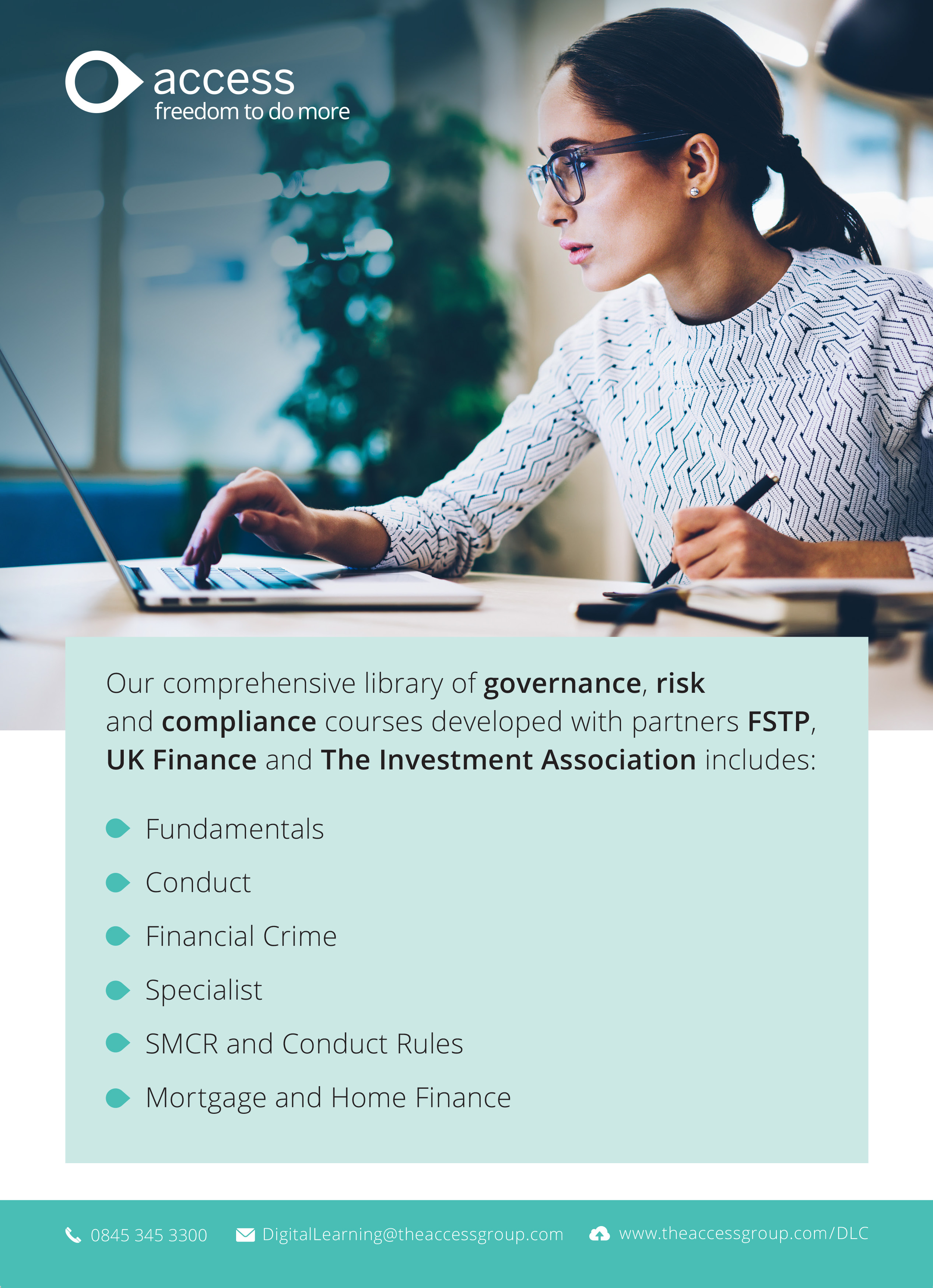At the start of 2020, sustainability, ESG (Environmental, Social and Governance) investment and Green Finance were heading to the top of the political agenda. Then the coronavirus pandemic changed everything. David Gristwood, Senior Learning Designer at The Access Group, takes a look at what’s been happening…
2020 looked set to be a year in which focus on sustainability issues was to be intensified. The United Nations Climate Change Conference was originally scheduled for November and there had been growing momentum on the Green Deal in Europe, aiming to transform Europe from a high to a low carbon economy. And let’s not forget, the latter aims to do this without reducing prosperity, all while improving people’s quality of life through cleaner air and water, aiming for better health and a thriving natural world. That’s not just a Green Deal…it’s a big deal too.
Then along came Covid-19. That meant the 2020 Climate Change Conference was postponed by a year. Meanwhile, we have to be realistic about the Green Deal for Europe which is going to suffer in the shorter term whilst Covid-19 continues to change our priorities worldwide. In the immediate future, policymakers are focusing on crisis management and redirecting already scarce financial resources to support their economies.
However, private investors still have the opportunity to get involved in projects that give them a return, whilst also supporting long-term environmental goals
However, there are some positives to come out of the pandemic with regards to sustainability. For example, with such a large percentage of people in lockdown, satellite images from NASA recently showed a substantial drop in the noxious gases emitted by motor vehicles, power plants, and industrial facilities. Concentrations in many countries were down by 50%.
How the pandemic could accelerate the Green Finance Strategy
At a time when governments need to reorient their focus and financial efforts towards crisis management, private investors have the opportunity to step in and fill the gap governments leave with investment in projects that give a return, but also support the environment’s long-terms goals.
In the UK, this could actually accelerate what the UK government intended when it launched its Green Finance Strategy last year, ahead of the Green Deal in Europe. The Green Finance Strategy recognises the crucial role that the financial sector will play in delivering environmental objectives and lays out a plan to incorporate redirecting private finance flows into areas such as improved air, water and wildlife.
If you’re not familiar with the strategy, it sets out the UK’s 10 goals for improving the environment within a generation (approx. 25 years). It details how the government plans to work with communities and businesses to achieve this across 10 headings. For example, the first 3 of the 10 headings are: ‘Clean air’, ‘Clean and plentiful water’ and ‘Thriving plants and wildlife’.
Each of the 10 headings then has substantial goals within it. For example, just one of the objectives under heading 1, ‘clean air’ is to: reduce emissions of the five major damaging air pollutants and improve air quality by 50% by 2030. To this end, you may have perhaps heard the government announce a few months ago the ending of the sale of new conventional petrol and diesel cars and vans by 2035.
Yes, there will be inevitable setbacks due to coronavirus, but if you look at the dates for goals such as above, there’s still time to ‘catch up’ and achieve these.
Now in addition to the considerable challenges each goal presents, a big one across the board is raising and sustaining the necessary levels of finance required, particularly when the pandemic will have a long-term impact on the world’s economy.
However, private investors still have the opportunity to get involved in projects that give them a return, whilst also supporting long-term environmental goals. Even before the coronavirus crisis it was estimated that public funds alone would only cover 15% of what is required for the projects to meet their goals. This leaves the private sector – firms and investors – the opportunity to provide the balance. They should be keen too, as the potential return on a lot of these projects is as much the priority as the environmental benefits.
Using finance to support firms with environmentally conscious objectives is of course nothing new. Prior to the Green Finance Strategy, many firms used terms other than Green Finance to represent the flow of money to projects with such objectives. But what is new is the much bigger scope for Green Finance, plus a momentum to get behind the use of the term ‘Green Finance’ compared to other perhaps more traditional terms in this area.
Prior to ‘Green Finance’ the most popular term in this area was ‘ESG investment’. It works well as a term as it can be shown that E, S and G stand for three words – Environmental, Social and Governance – and these can be broken down into further specifics for use by socially conscious investors as a set of standards to screen potential investments.
However, that shows that green finance and ESG investment are not actually the same thing. It might be a touch simplistic, but Green Finance is in effect redirecting private finance flows into the ‘E’ aspect of ESG investing.
But let’s not get hung up on labelling with arguably interchangeable terms. The main point is that the UK financial services sector and its investors – be it banks, insurers, lenders – has an opportunity to do something really good here. They can be the facilitator that redirects finance flows into clean growth and environmental sectors with literally life changing results. The planet – yes, literally the whole planet – will change for the better if they succeed.
Can you think of a bigger and better objective? Perhaps beating coronavirus is one, but you’d be hard pushed to find another.





